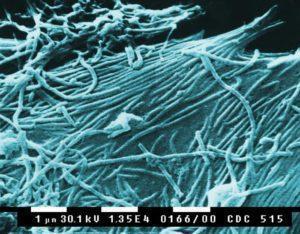Antibodies are the correlate of protection in most of the available, effective anti-viral vaccines. Therefore, it is important to understand the role antibodies play in the pathogenesis and prevention of Ebola virus. This study shows that antibodies from an Ebola survivor are capable of having potent anti-viral activity. This research may help in Ebola immunogen design.
The Ebola outbreak of 2014 in West Africa caused over 11 00 deaths and nearly 30 000 infections. Ebola virus is part of the Filoviridae family of viruses. The reservoir of the virus is most likely bats and the virus can then spread to humans. The virus is transmitted through direct contact through body fluids and contaminated objects. Some of the symptoms of Ebola virus disease include vomiting, diarrhea, fever and eventually bleeding through different parts of the body such as the eyes and ears.
Preventing Ebola infection through a vaccine is now a major global research focus and researchers from the Scripps Research Institute, led by Laura Walker, aimed to gain further knowledge on the role of antibodies in protection against Ebola.
The researchers obtained a convalescent blood sample from a survivor of the 2014 Ebola outbreak. At only 3 months post infection, 3% of the donor IgG antibodies were specific to the Ebola envelope glycoprotein (GP) and bound strongly to the GP. Altogether, the researchers were able to isolate 349 GP-specific antibodies from this donor.
They next mapped the epitopes bound by these antibodies. They found that the donor antibodies bound to four distinct epitopes on the GP. To further examine the binding of the antibodies to GP, they performed negative-stain electron microscopy and these structural studies further confirmed the in vitro findings. The researchers used a live virus plaque reduction neutralization assay to test how well the antibodies were able to neutralize Ebola strains. They found that several of the isolated antibodies were extremely potent against Ebola virus.
The researchers went on to test the antibodies in mouse models to examine whether they were effective as post-exposure therapy. They found that the antibodies which target the GP stalk and GP1-GP2 interface were highly effective as post-exposure prophylaxis while the antibodies towards the glycan cap and other, undefined sites had no efficacy in their models.
Altogether, these results provide insight into the structure and function of antibodies from an Ebola survivor. The epitopes bound by these antibodies could potentially be used in anti-Ebola immunogens since they can be targeted in natural infection. In addition, the potent antibodies studied from this donor may be useful in Ebola therapy and prevention.
Journal Article: Bornholdt et al., 2016. Isolation of potent neutralizing antibodies from a survivor of the 2014 Ebola virus outbreak. Science
Article by Thandeka Moyo












